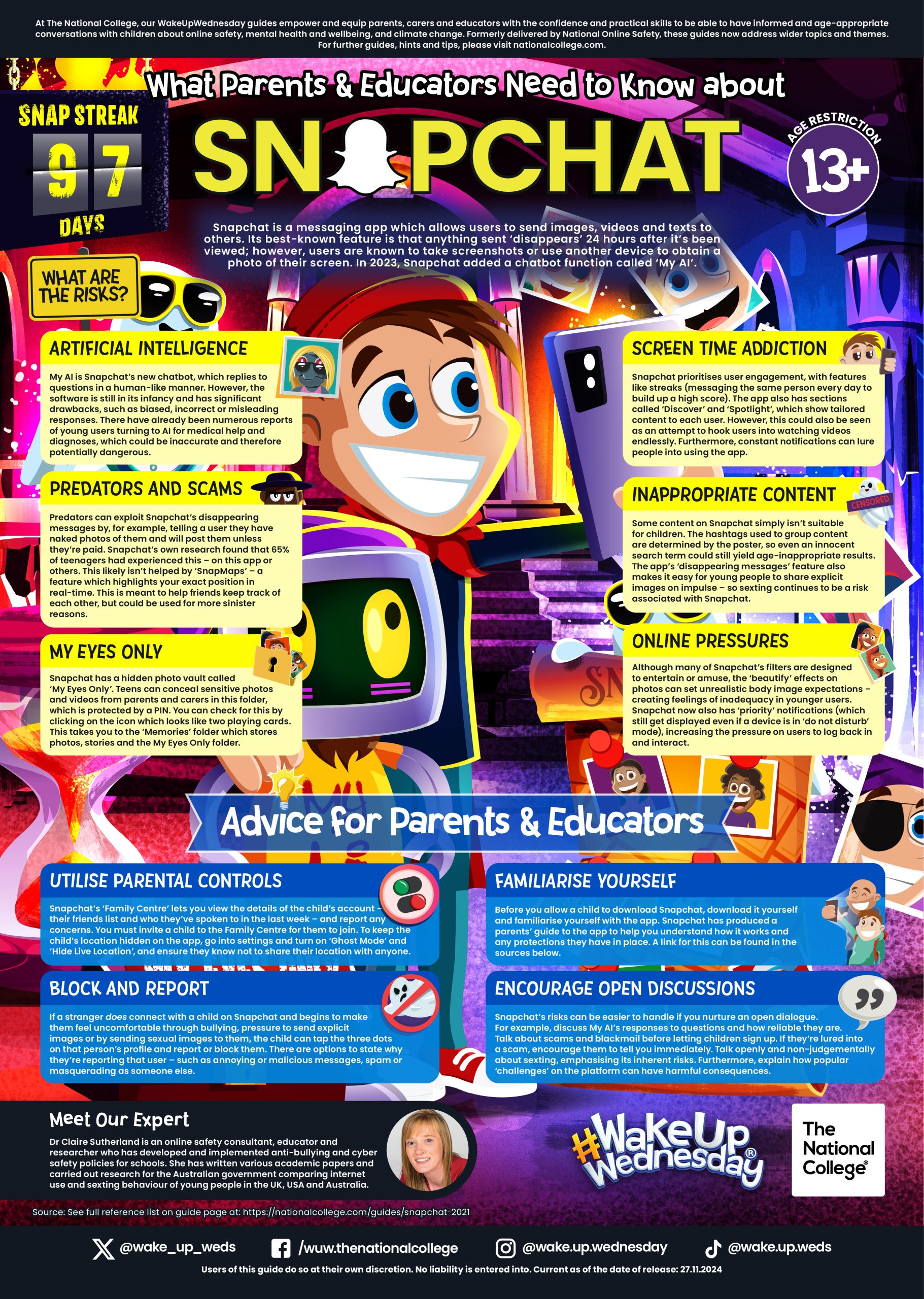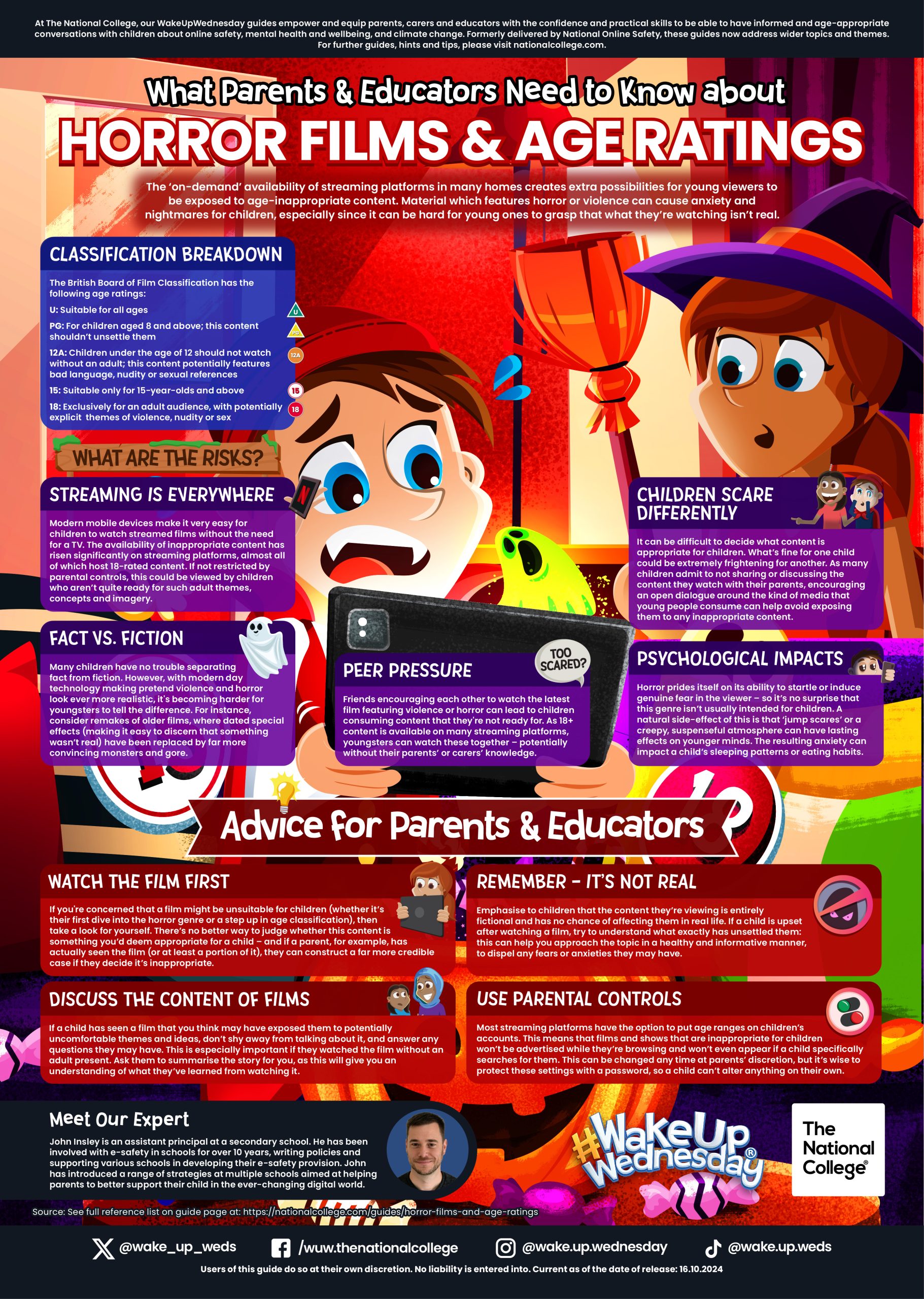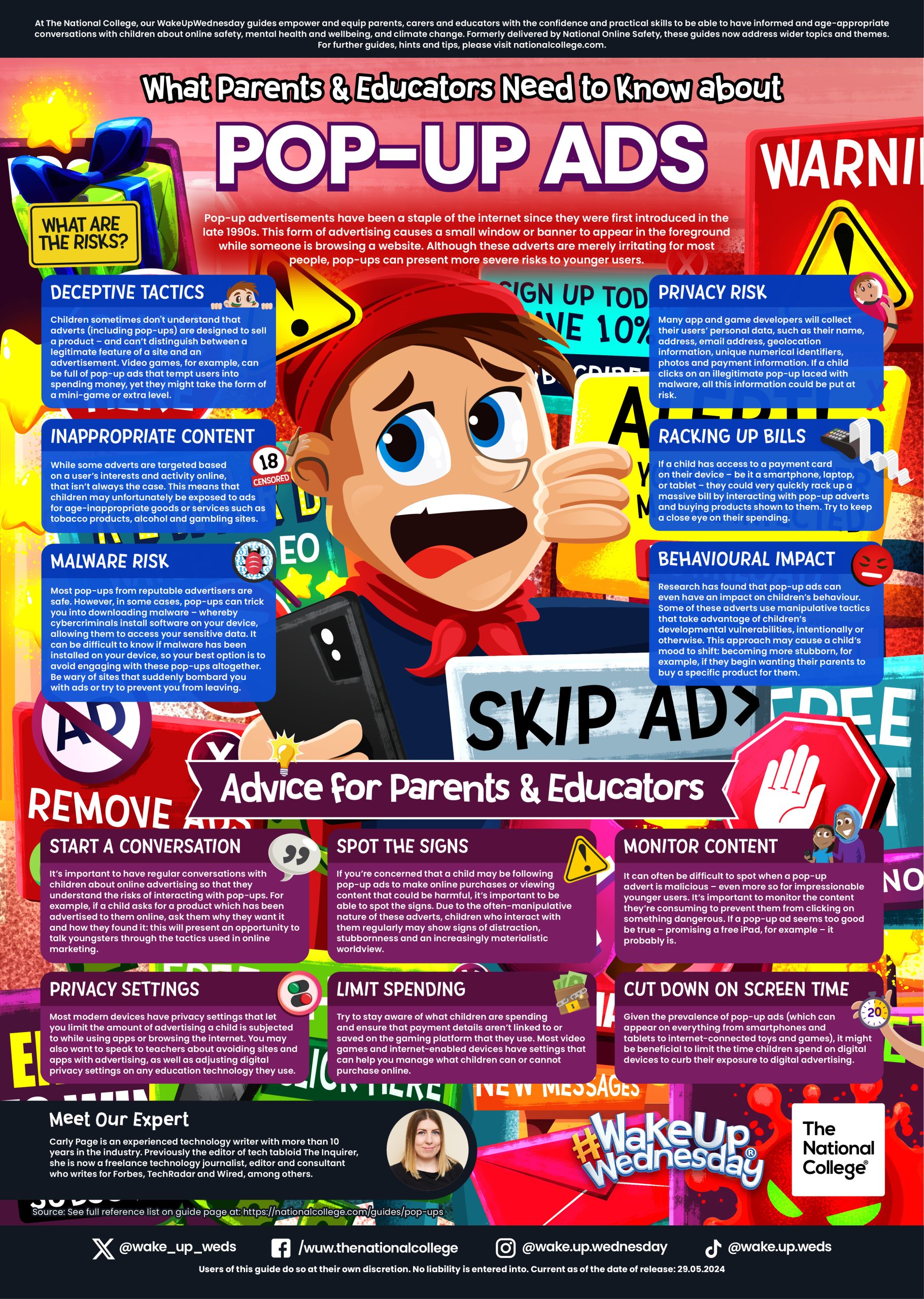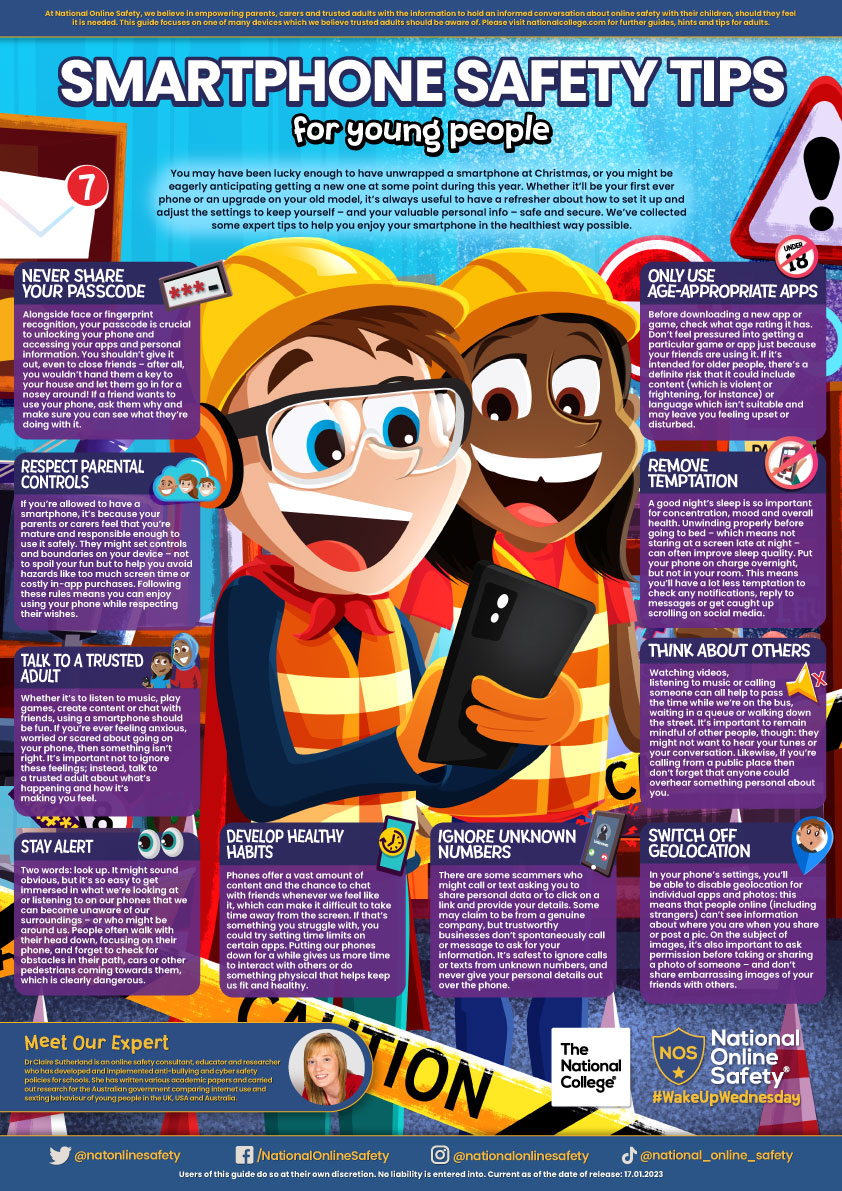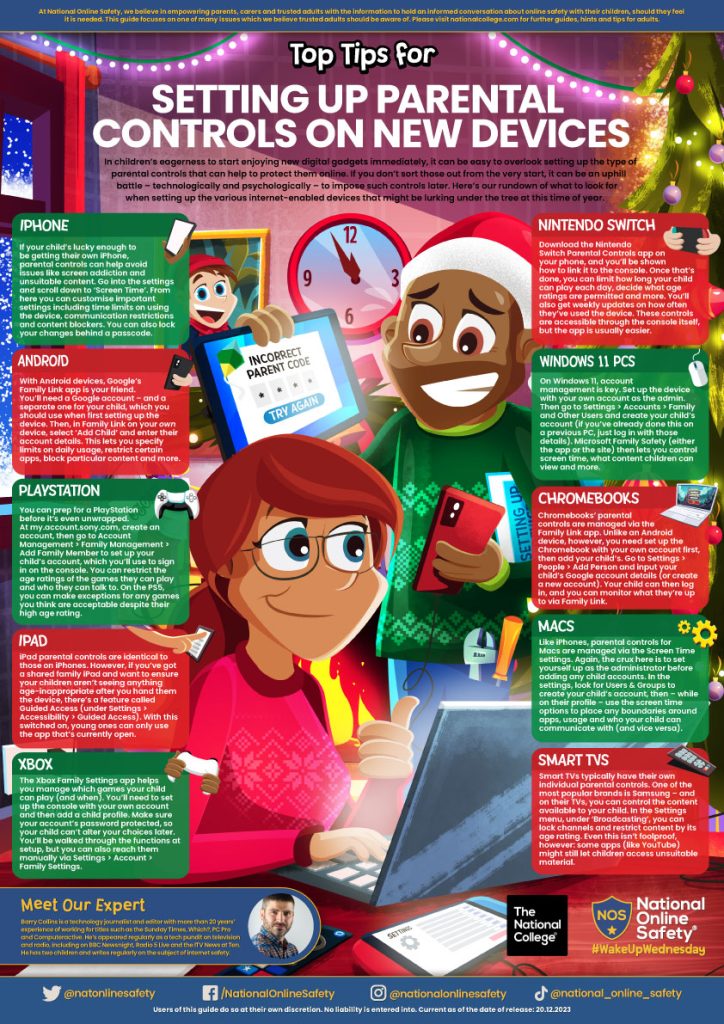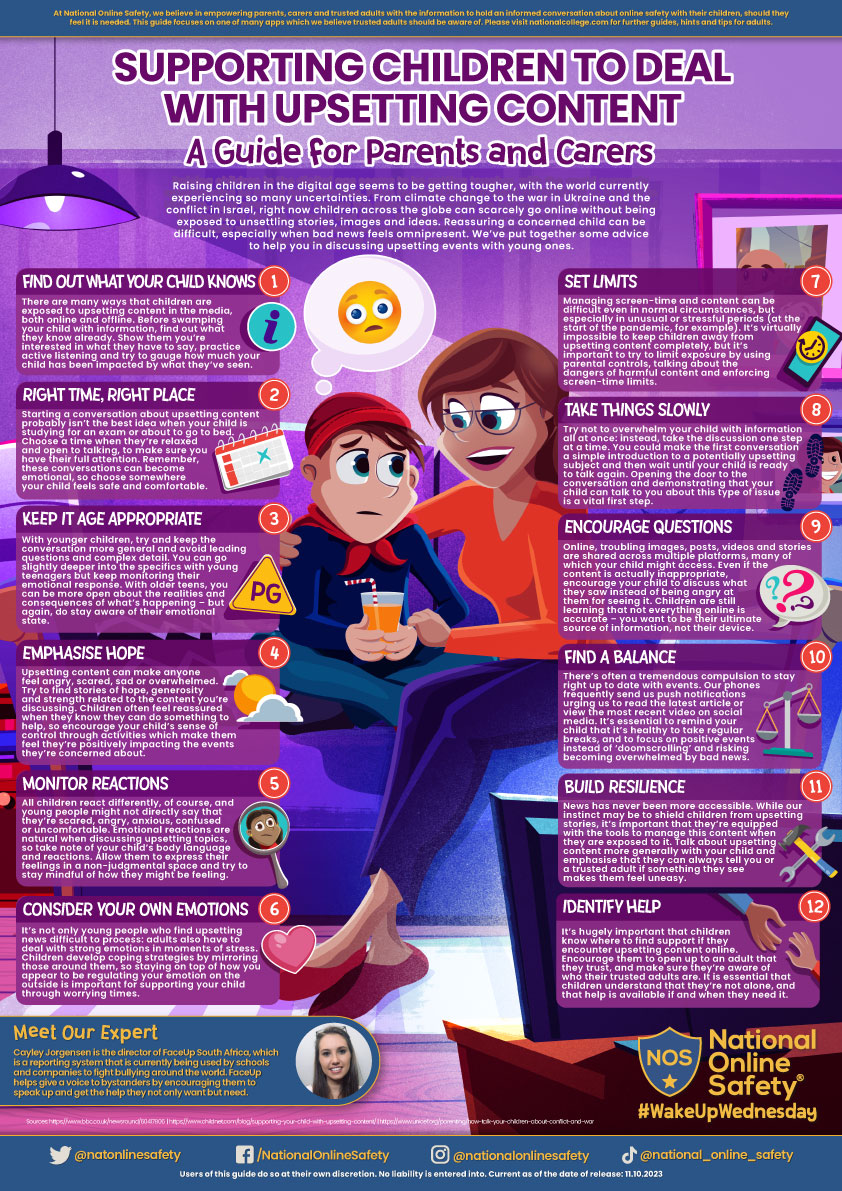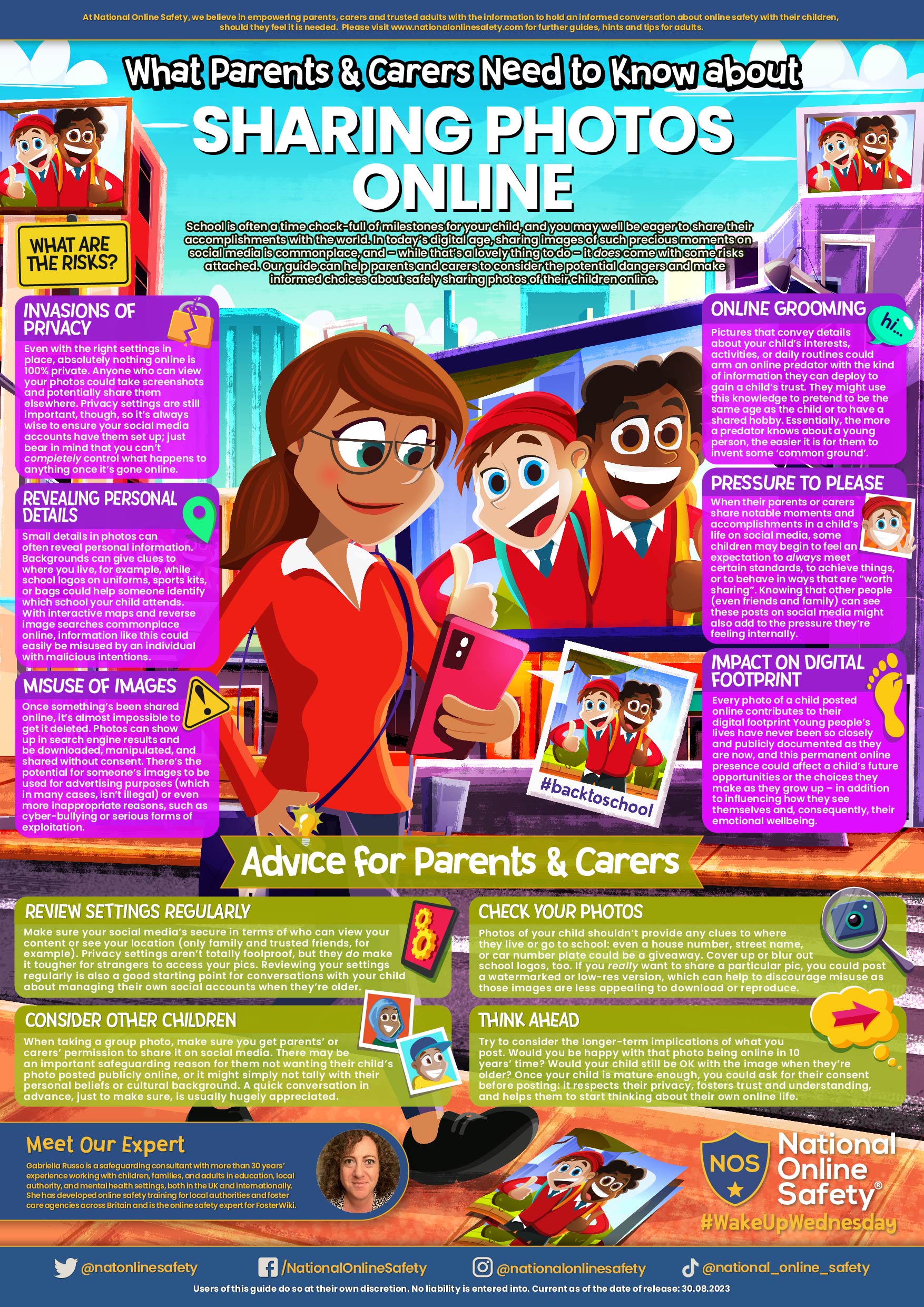Snapcat themselves specify an age restriction of 13+ so no primary-aged children should be using the platform, but we thought this information could be useful for our families with older teens!
As one of the most popular messaging apps available, Snapchat sees an enormous amount of usage across the globe – with a significant number of those utilising the platform being under 18. For that reason, it’s important to understand the potential risks to younger users when spending time on this app.
Of course, it can be difficult to identify every hazard associated with the platform, let alone what can be done to mitigate these concerns. Our guide lays out the key online safety risks of Snapchat, as well as how to safeguard young people while they use the app.
Grab our guide below!National Online Safety
This guide is from National Online Safety.
Links to further information
Links to external websites are provided so that users of our website have additional relevant information, which they may wish to explore. However, Lord Deramore’s Primary School is not responsible for the content of external websites, and the inclusion of a link should not be understood as an endorsement.
- https://www.nspcc.org.uk/keeping-children-safe/online-safety/online-safety-blog/is-snapchat-safe-for-my-child/
- https://parents.snapchat.com/en-GB
- https://values.snap.com/en-GB/news/international-safer-internet-day-2024
- https://help.snapchat.com/hc/en-gb/articles/13266788358932-What-is-My-AI-on-Snapchat-and-how-do-I-use-it
- https://values.snap.com/en-GB/news/early-learnings-from-my-ai-and-new-safety-enhancements
- https://9to5mac.com/2023/04/19/snapchat-live-location-sharing-chatgpt/

